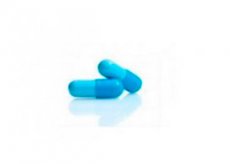Medical expert of the article
New publications
Preparations
Pheebs
Last reviewed: 04.07.2025

All iLive content is medically reviewed or fact checked to ensure as much factual accuracy as possible.
We have strict sourcing guidelines and only link to reputable media sites, academic research institutions and, whenever possible, medically peer reviewed studies. Note that the numbers in parentheses ([1], [2], etc.) are clickable links to these studies.
If you feel that any of our content is inaccurate, out-of-date, or otherwise questionable, please select it and press Ctrl + Enter.

Fibs is a medicine from the group of biogenic stimulants.
The medicine demonstrates a fairly high bioactivity, helps to stabilize metabolic processes, and at the same time improves tissue healing and stimulates metabolic processes. The medicinal substance has a beneficial effect on the physiological activity of the body and increases its resistance to the effects of negative factors.
The medicine is made from distillate obtained from estuary mud. It also contains coumarins with cinnamic acid.
Release form
The medicinal element is released in the form of a liquid for subcutaneous injections, inside glass ampoules with a capacity of 1 ml. There are 10 such ampoules inside the box.
 [ 2 ]
[ 2 ]
Dosing and administration
The medication should be administered subcutaneously. A single dose is 1 ml, which is administered daily for 1 month. If indicated, the therapeutic cycle can be repeated after 90 days.
In case of respiratory diseases associated with the tuberculosis pathogen, the use of the drug begins with a portion of 0.3 ml. Then it is gradually increased to 1 ml.
Shelf life
Fibs is allowed to be used for a period of 4 years from the date of manufacture of the drug.
 [ 17 ]
[ 17 ]
Attention!
To simplify the perception of information, this instruction for use of the drug "Pheebs" translated and presented in a special form on the basis of the official instructions for medical use of the drug. Before use read the annotation that came directly to medicines.
Description provided for informational purposes and is not a guide to self-healing. The need for this drug, the purpose of the treatment regimen, methods and dose of the drug is determined solely by the attending physician. Self-medication is dangerous for your health.

